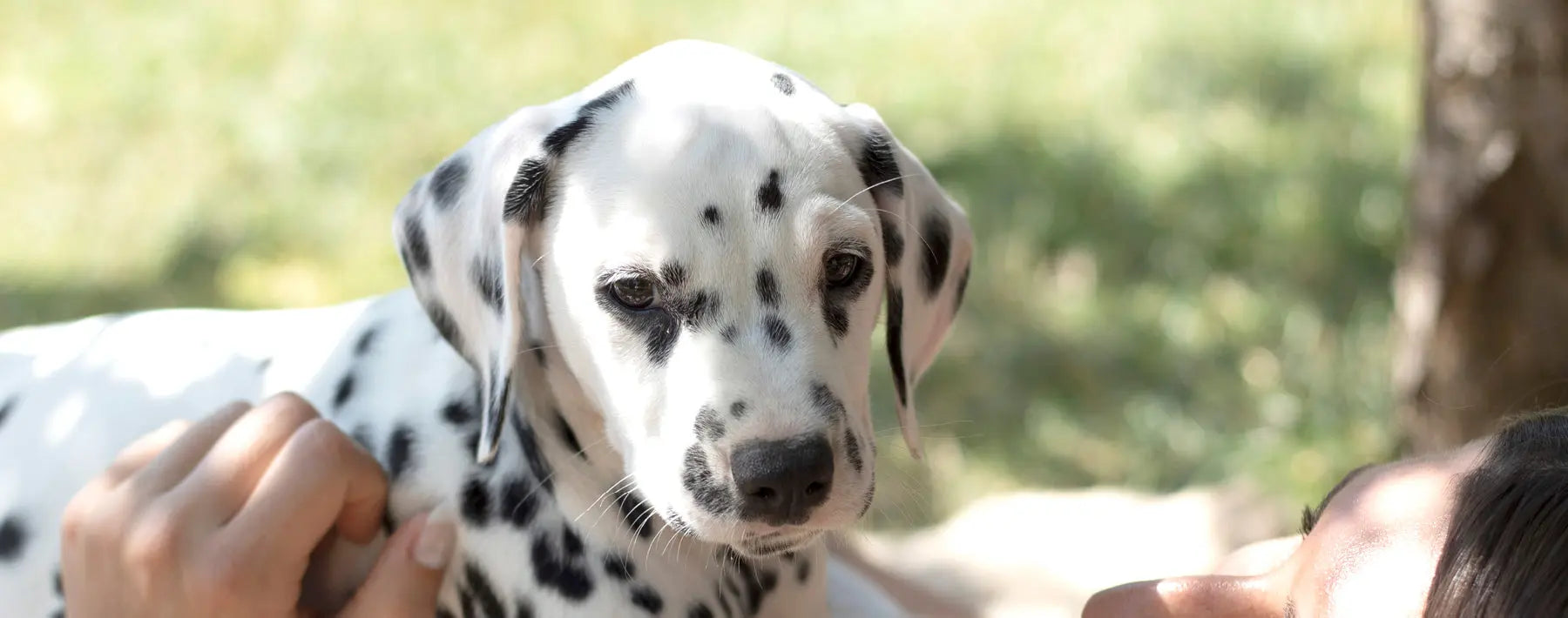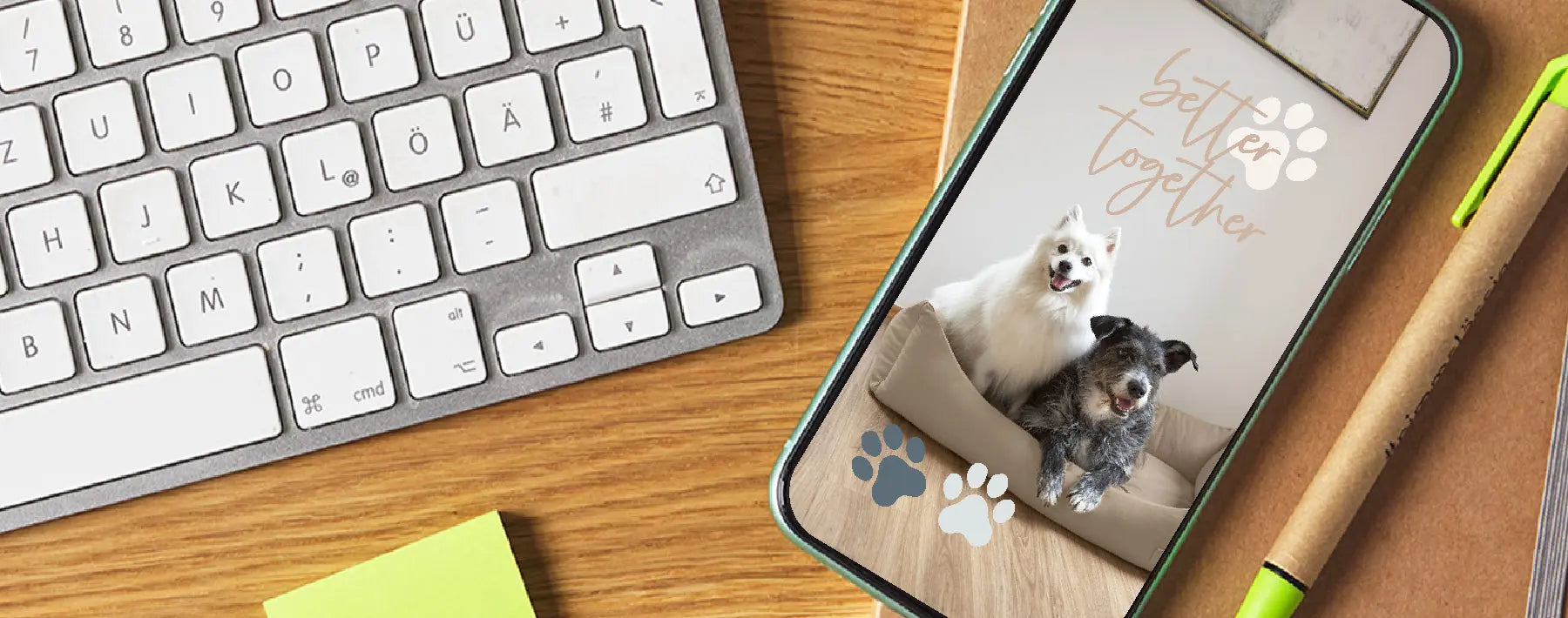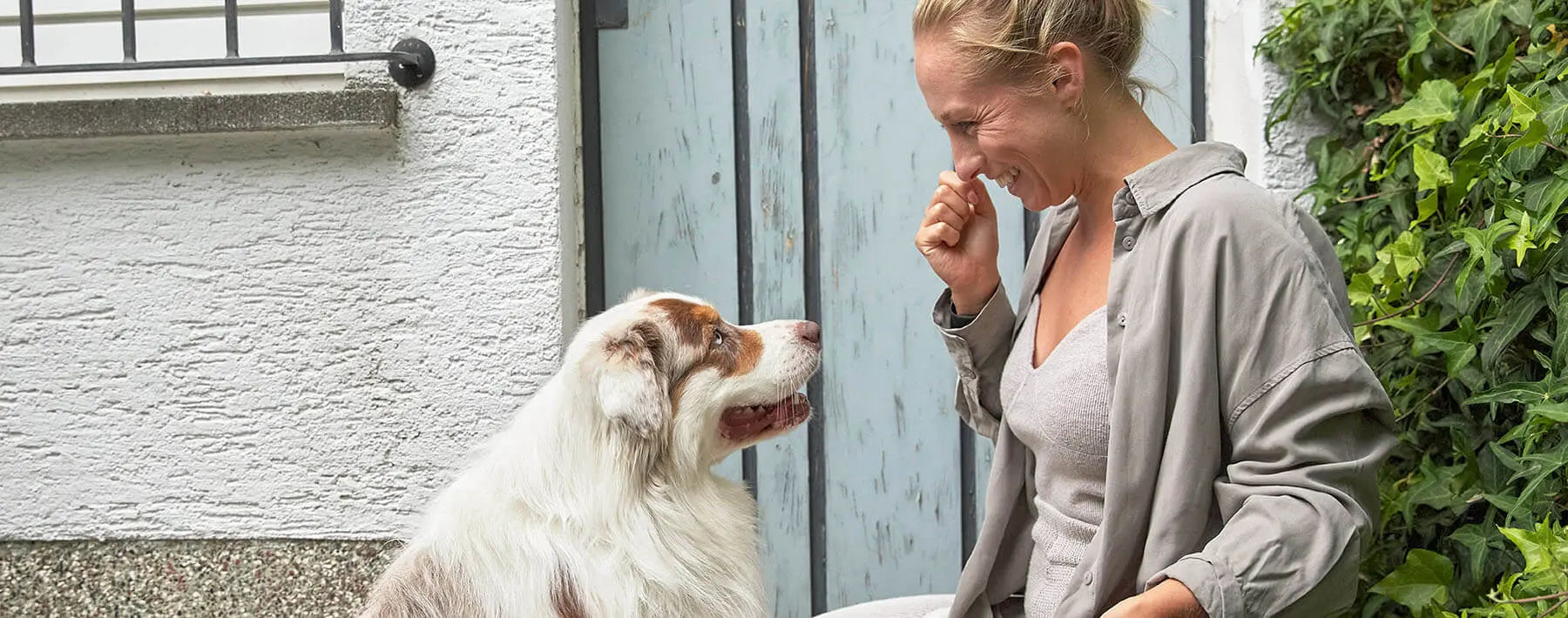
Your puppy should learn this early on
Did you just have a little puppy move in with you? Well then, congratulations on this animal addition to the family. When the first days of getting to know each other are over and everything at home has been thoroughly explored by your little friend, you should devote yourself to the first most important training measures. Because in puppyhood, your dog is usually very obedient and learns quickly.
This PALOPA blog post gives you a rough overview of training measures that are important for the first time with your baby dog.
Three important pieces of information in advance:
- It is incredibly important that you do not overwhelm your four-legged friend. Young dogs can maintain their concentration for a maximum of five to ten minutes. You will notice that your concentration is waning by signs such as yawning, scratching or restless looking around.
- If your puppy carries out commands correctly, reward him. You can do this with treats, but also with affection. Cuddles, kind words and playful play are also good rewards.
- Consistency is sometimes the most important element in dog training.

Become house trained
When your puppy moves in with you, you should immediately work on getting him house trained. Routines such as regular feeding and play times as well as walks play an extremely important role. They make it easier for your puppy to recognize that he can go outside at certain times. Once he does, use a predetermined word, such as "pee," and praise your little one vigorously when he's finished. To reinforce the praise, you can give him a small treat. This way he notices that you are happy about his behavior. For every transaction that goes well, you proceed as described. At some point, your little buddy will have memorized the routine so well that he will pee on command.
Always take your puppy outside when he:
- woke up
- ate or drank
- just greeted you happily
- played
- draws small circles and sniffs the floor
- raged wildly
Attention: Every dog is individual. Some puppies learn to be house trained quickly, others take longer. Don't worry if it takes a little more time for you. Patience is the solution here! Forgive your little buddy for one or two mishaps.
Gain positive experiences with other dogs
Your little furry friend should also learn social skills, such as dealing with other dogs or dealing with people in a variety of everyday situations, when they are still puppies. For example, it is important to be able to distinguish between serious and playful behavior. A great option for this is the puppy play session at your dog school, where many small puppies meet each other on a regular basis. Of course, you can also meet other dog owners privately. The way that suits you best.

Learn basic commands
Life together is much easier if your little buddy is familiar with the first basic commands from an early age. Regular practice helps your puppy to permanently internalize what he has learned.
These are:
- Listen to his name
- No
- Come
- Seat
- Stay
- Place
Of course, in addition to the basic commands, there are also rules that are important to you personally. For example, that he is not allowed to go to bed or on the couch, that he should not bark when the doorbell rings, or that he sits on a blanket before the family sits down at the dinner table. It is important that all family members work together and there are no exceptions!
Being home alone
Of course, you would like to be with your little puppy around the clock. Who does not want that. However, it is important that your dog learns to stay home alone early on. And it's best to do it in small steps. After all, you want to be able to leave your dog alone at home for an hour, for example when you go to exercise or go shopping. As the saying goes: practice early!
When your little buddy is lying relaxed in his dog bed, leave the room for a moment. If he whines outside the door, don't open the door until he takes a break. Go to the mailbox without it and don't make a greeting when you come back in the door: you were only gone for a few minutes! Once he accepts these short absences, you can slowly extend the periods.

Leash walking
In a pack, someone is always in charge. On a leash, you definitely have to take the lead and give your four-legged friend the feeling that you can ensure their safety in all situations.
Basically, you just have to follow two rules to train your puppy to walk on a leash:
- If the leash is tight, it won't go any further.
- If the leash is loose, you continue walking together.
We hope our tips will help you practice the first important parenting measures in your everyday life together. We wish you good luck! And don't forget: being patient is half the battle!

Want even more dog knowledge? Become part of the PALOPA community! Together with the experts from the HUNDIVERSUM ®, we regularly provide you with tips and information and look forward to a regular exchange.
Did you like the blog post? Then always stay up to date with our newsletter and be automatically notified about new blog posts. You can also get great discounts and freebies. Here go to registration.



Leave a comment
This site is protected by reCAPTCHA and the Google Privacy Policy and Terms of Service apply.